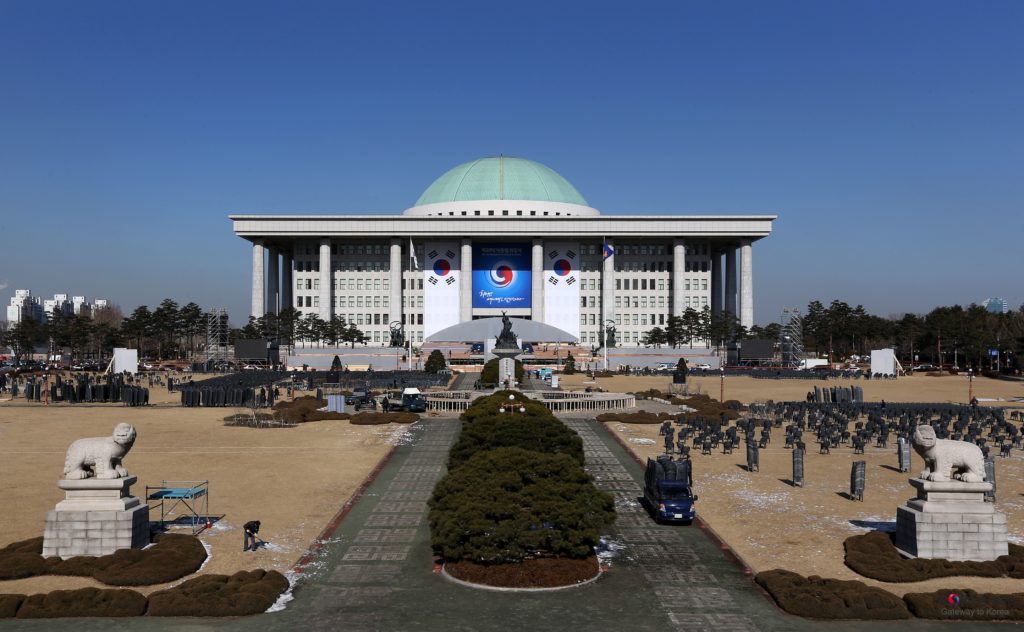The Peninsula
Politicians under Pressure to Retire

This briefing comes from Korea View, a weekly newsletter published by the Korea Economic Institute. Korea View aims to cover developments that reveal trends on the Korean Peninsula but receive little attention in the United States. If you would like to sign up, please find the online form here.
What Happened
- A top official from the Liberty Korea Party (LKP) announced that one-third of their incumbent lawmakers would not stand in next year’s legislative elections.
- On November 17, in two separate announcements, former Minjoo Party legislator and presidential chief of staff Im Jong-Seok and LKP Representative Kim Se-Yeon declared their intention to not run in the upcoming election.
- Others like former LKP leader Kim Moo-sung and Minjoo Reps. Rhee Cheol-hee and Pyo Chang-won also announced their decision to not seek a nomination in 2020.
- In last year’s Inter-Parliamentary Union survey, South Korea ranked 143 out of 150 member countries for the share of lawmakers aged below 45 (6.33 %).
Implications: Public demand for a “changing of the guard” in the next parliamentary election reflects widespread fatigue with the existing political establishment. Successive scandals in both the leading ruling and opposition parties, from President Park’s impeachment to Justice Minister Cho Kuk’s resignation, fueled dissatisfaction towards the existing cast of figures leading the legislature. Making things worse, the current legislative session is on track to end with the lowest number of bills passed.
In response, a recent survey showed that 69.4% of respondents noted that at least 30% of lawmakers should be replaced in the next election. In another survey, 80.5% of respondents agreed that there should be some generational change in the upcoming parliamentary election. These polls pressure political parties to overhaul their lineup of candidates. Announcements by political mainstays like Im Jong-suk and Kim Se-yeon last week emboldened calls to replace multi-term lawmakers with new faces.
Context: It is not the first time that the general public’s dissatisfaction translated into an injection of fresh politicians to the legislative election lineup. However, there are arguments that next year’s election will be a broader push for a generational change. In 2004, 23 lawmakers in their 30s were elected. The number of first-term lawmakers aged under 40 significantly decreased since the 2008 election. Only 3 of the 300 lawmakers elected in 2016 were under the age of 40. While these veteran legislators were once at the forefront of leading South Korea’s political transition from authoritarianism to democracy, the so-called 386 generation is now seen as a roadblock for younger, more dynamic politicians who can bring fresh policy ideas to the National Assembly.
Korea View was edited by Yong Kwon with the help of Soojin Hwang, Hyoshin Kim, and Rachel Kirsch.
Photo from the Republic of Korea’s photostream on flickr Creative Commons.
